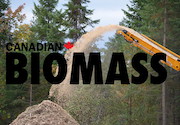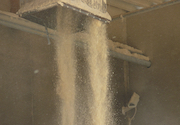| |
| |
| |
 |
|
@{mv_date_MMM d, yyyy}@ |
|
| |
WPAC, in co-operation wsith the BC Forest Safety Council, WorkSafeBC and Canadian Biomass, held the Belt Dryer Symposium on Nov. 25, 2020 to share learnings from belt dryer safety incidents. Here are the key takeaways.
» Read more...
Under the terms of the extension, Pinnacle will supply 80,000 to 90,000 metric tons per annum of industrial wood pellets to Mitsubishi beginning in Q1 2023. The industrial wood pellets will be used by a biomass power generation plant in Japan.
» Read more...
The $250 million project at the Port of Prince Rupert will improve the port’s ability to transload pellets and other resources products. It’s a move welcomed by the pellet sector for efficient logistics and transportation to market.
» Read more...
Under the proposed CFS, producers and distributors of fossil fuels would have to reduce their carbon content by 2.6 per cent by 2022 and 13 per cent by 2030.
» Read more...
The draft regulations represent an important step forward in Canadian policy towards recognizing the full value of clean fuels like ethanol, biomass-based diesel, renewable natural gas, and green hydrogen in the fight against climate change, said RICanada.
» Read more...
|
| |
|
| |
 2020 was a year unlike any other, thanks to COVID-19. But with wood pellet producers declared essential early on in the pandemic, along with other energy producers, progress continued to be made in our industry. Here are Canadian Biomass’ top 20 feature stories of the year.
» Read more...
2020 was a year unlike any other, thanks to COVID-19. But with wood pellet producers declared essential early on in the pandemic, along with other energy producers, progress continued to be made in our industry. Here are Canadian Biomass’ top 20 feature stories of the year.
» Read more... |
| |
 What exactly is a combustible dust, how can you determine if combustible dust hazards exist in your facility and does particle size matter? Eric Brideau, a project consultant in the Industrial Process Safety group at Jensen Hughes, who is conducting a research project with WPAC, answers those questions and more.
» Read more...
What exactly is a combustible dust, how can you determine if combustible dust hazards exist in your facility and does particle size matter? Eric Brideau, a project consultant in the Industrial Process Safety group at Jensen Hughes, who is conducting a research project with WPAC, answers those questions and more.
» Read more... |
| |
|
| |
|
|
| |
| |


